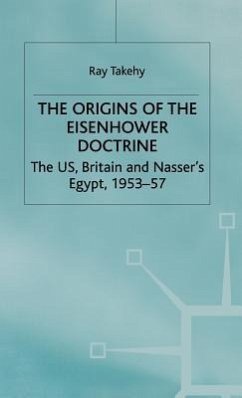During the 1950s, Gamal Abdul Nasser dominated the political life of the Middle East. The Egyptian regime gave content to Arab desires for greater unity and reduction of external influences. The ideals of autonomy and progressive reform resonated throughout the region that had only recently achieved its formal independence. This was the age of Nasserism as Egypt embodied the Arab nationalists' hopes and calls for the construction of a new society.No one understood the power and appeal of Egypt better than President Dwight Eisenhower. Employing many declassified American and British documents, Takeyh examines the intricate containment policy. Along this path, Takeyh sketches Eisenhower's attempt to reconcile the demands of Britain's imperial strategies with the Arab decolonization movements. Contributing to the evolving 'Eisenhower revisionist' scholarship, Takeyh portrays a president in command of American policy as it sought to contain the Soviet moves in the Middle East, resolve the Arab-Israeli conflict and ultimately resuscitate Western influence in the Middle East in the aftermath of the Suez crisis.
Bitte wählen Sie Ihr Anliegen aus.
Rechnungen
Retourenschein anfordern
Bestellstatus
Storno








